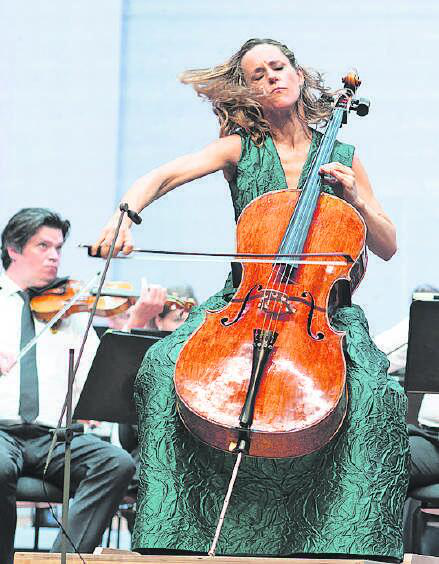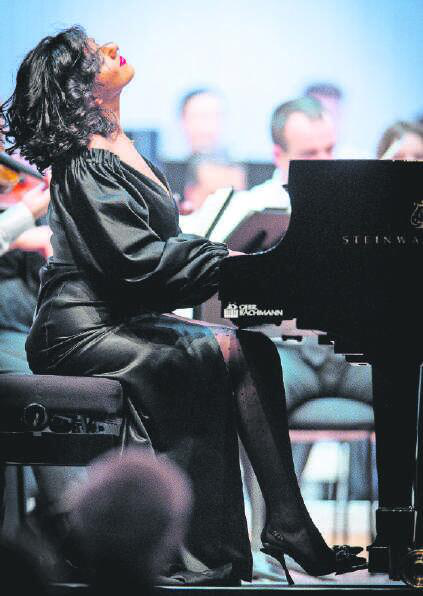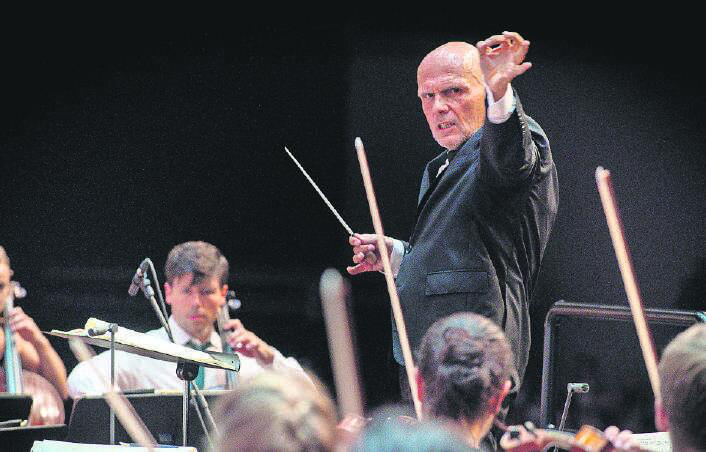Two musical highlights
30.08.2021 Arts & CultureAfter its intensive weeks as a “tool” of the Conducting Academy, the Gstaad Festival Orchestra under the direction of Jaap van Zveden unfolded its outstanding qualities in its two performances in mid-August with the interpretation of great symphonies and again as an accompanist of highly demanding soloist concerts.
Gstaad can consider itself fortunate to have “its own” orchestra, a resounding advertising medium that inspires anew every year with its world-class concerts and carries the innovative spirit of the festival to many music centres around the world.
At first glance everyone wondered how the Oberon Overture by Carl Maria von Weber and Antonìn Dvorák’s Symphony No. 7 would relate to this season’s London theme. The solution to the problem: both had had their world premieres in the English metropolis in the 19th century. Both works received enthusiastic acclaim at the time and they did not fail to make an impression on the audience in the festival tent.
The Oberon Overture was a kind of calling card for the orchestra and its brilliant leader Jaap van Zveden. The latter developed an enormous versatility of the most diverse feelings from the very first entry. After the mysteriously shimmering introduction, the overwhelming Allegro jubilation with the distinctive horn calls broke out. And the maestro spurred on, soothed, shaped with enormous intensity – he lived the works. And the orchestra responded to the intentions of its leader.
Van Zveden’s creative joy was also ravishingly evident in the 7th Symphony by Dvorák. Like a magician on stage, he led through the great work with its combative character, in which the composer wanted to express the patriotic desire of the Czechs of the time for a flourishing nation state.
He brought out all the shades of Dvorák’s intentions from the orchestra, from the sombrely threatening start to the joyful Slavic themes and the characteristic Bohemian folk dances with their exciting rhythms to the triumphant finale. The intensity of the strings and the excellent wind instruments remain deeply in the memory.
The magic of Kathia Buniatishvili
With Kathia Buniatishvili’s interpretation of Peter Tchaikovsky’s Piano Concerto No. 1 in B-flat minor op. 23, the audience experienced an absolute festival highlight. The work has real catchy qualities, is one of the most frequently performed piano concertos and had already caused plenty of discussion during Tchaikovsky’s lifetime. The composer’s friend and mentor Nikolai Rubinstein had initially described it as worthless, unplayable, even trivial and vulgar, in contrast to all the admirers who found the work ravishing.
No sooner had Buniatishvili entered the stage than everyone was gripped by the artist’s charisma as a person and pianist. From the very first chords, one was carried away by her enormous creative joy. What a richness of colour! In this interpretation, the work experienced fascinating new dimensions: On the one hand, the effervescent temperament with beguiling virtuosity, dexterity and almost impish joy, then the sensitivity with extremely gentle passages and the enchanting moments in which the artist took her time to let the finest piano passages fade away.
Buniatishvili drew her audience into a frenzy. She enchanted, charmed, seduced. The orchestra followed the intentions of the pianist and the conductor, all performers became one, radiating genuine joy in creating together. The stirring interpretation evoked real storms of enthusiasm, which were calmed down with a soulfully calm encore.
Gateway to the future
With his Cello Concerto, the composer Edward Elgar desperately tried to return to normality after World War I, but unfortunately did not succeed. It was to remain one of his last compositions. Johannes Brahms concluded his symphonic work with his 4th Symphony, but opened a wide door for the musical future in the last movement. The syncopations and counter-rhythms brought modernity into his music, which later led to Bartók.
With Sol Gabetta, Elgar’s Cello Concerto in E minor op. 85 received an interpretation of deep emotionality, expressing melancholy and anguish as well as longing and a sudden flaring lust for life. The soloist, who is a permanent fixture at the festival – what luck! – gave the work its meaningful simplicity and beauty. She was able to live out all her assets: her passionate temperament, her velvety, silky-smooth tones, her brilliant technique and nimble virtuosity.
Sol Gabetta seemed to enjoy her playing with a smile, even in the most difficult passages, always in close contact with the conductor and the orchestra, who were great accompanists and tuned in to all the changes of tempo and the richness of interpretation. The encore, the Song of the Birds by Pablo Casals, together with the entire cello section, sounded particularly beautiful.
Farewell with Brahms
After composing his 4th Symphony in E minor, op. 85, Johannes Brahms had felt deep doubts about his work, which had been written in Styria. “It tasted like the climate there, where not even the cherries would become sweet and ripe ...”
These doubts were dispelled at the latest in the performance under the firing direction of van Zveden. The symphony, which is often played today, became another festival highlight. Both the orchestra and the conductor achieved an absolute worldclass performance and captivated the large audience. The performance was gripping from the insistently urgent opening through all the lightfilled interjections, the archaic wind themes and cello cantilenas of the second movement and the wild, almost diabolical theme of the Allegro giocoso to the brilliant, passionate final movement with its magnificent wind passages.
What van Zveden achieved can hardly be surpassed. The head of the New York Philharmonic brought out all the finesse in his local orchestra. He was one with the symphony. It also lived in his movements – a spectacle for all to watch the conductor. After the brilliant conclusion with a splendid encore, heartfelt thanks may be expressed to all participants for these great moments.
BASED ON AVS/KLAUS BURKHALTER






